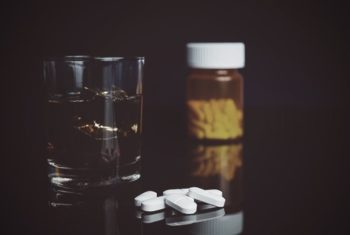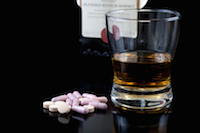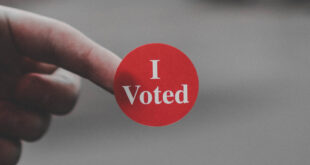 One common question I get from patients when I prescribe new medication involves alcohol, “can I have a few beers when I’m on this Doc?”
One common question I get from patients when I prescribe new medication involves alcohol, “can I have a few beers when I’m on this Doc?”
If not addressed it can lead to misinformation, people not taking the drug, and some having avoidable side effects, not to mention some people needlessly missing out on a fun night out at the bowls club.
Alcohol is a drug and all drugs have the potential for interactions with others. A basic knowledge about alcohol the drug – its side effects, and how the body handles it, gives you a good idea on what interactions can occur.
Alcohol gets you drunk; that is why many drink it in the first place! To doctors, the symptoms of being a drunk are side effects; sleepiness, poor balance, disinhibition, gastric upset. Combining alcohol with other drugs that cause the same side effect is a bad idea because they will make that side effect more pronounced. Examples of drugs that will do this are some anti depressants and strong pain relievers. Combining these with alcohol could make you extra sleepy, and combining alcohol with anti inflammatories could cause stomach ulcers. Alcohol should be avoided with drugs like these.
Alcohol can also interrupt with the way another drug is processed by the body. Alcohol is processed by the liver, and when it uses the same enzymes as another drug in the liver to be broken down, the concentrations of that drug, and of alcohol, can go up and down. One example of this is with the antibiotic called metronidazole, which speeds up the processing of alcohol, causing a sudden and severe hangover if the two substances are combined. Another example is someone who takes alcohol and paracetamol: the paracetamol struggles to be cleared and it is much more likely to cause harmful effects on the liver (especially if too much has been taken).
There are too many interactions to mention them all here. Some people take the stance that they do not drink when on any medication. This stance cannot be faulted, especially when you consider the sickness that made you take the drug in the first place probably means you should be taking it easy. However, if you are on the drug long term, it is a bit tough to say no more alcohol, ever, and this may mean you stop and start taking the drug, or avoid taking it altogether.
As a doctor, I do not want that, so a quick conversation with your local doctor or pharmacist should settle the confusion. Sometimes, even when alcohol does react with a drug it does not necessarily make it an absolute no go area. An example of this is with warfarin, a blood thinner, where as long as your alcohol intake is under recommended levels and not binged upon, it is safe.
As drugs go, alcohol is a much-loved one. But it should be treated like any drug – with care, consideration and often in discussion with a health professional.
By Dr Davis Hassan
General Practitioner
I am interested in providing a real perspective on health and medicine and aim to focus on the things that matter when considering a health issue, and what has worked with my patients.









Join the Discussion
Type out your comment here:
You must be logged in to post a comment.